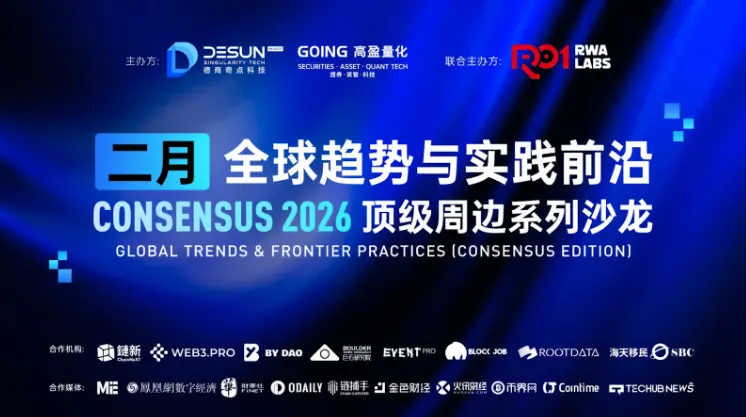Messari: Why do we need Web3?
This article was published on Butian Yishi, authored by MessariCrypto research analyst Mason Nystrom, and compiled by taoshengshi.
In short—Web3 is the next era of the internet. Web 3.0, commonly referred to as Web3, is a paradigm that drives the internet towards a more democratized direction.
Web3 is manifested through new technologies such as cryptocurrencies, virtual reality, augmented reality, artificial intelligence, and more. Driven by new technologies, the foremost impact of the Web3 movement is how we, collectively and as a society, perceive and evaluate the internet. The mission of Web3 is to create an internet that serves the public and is owned by the public.
The Internet: Creating Something from Nothing, but Changing Everything
The internet has fundamentally changed the world we live in. This is an undisputed fact. The internet has changed everything, and it is worth emphasizing again, as the role of the internet has been greatly underestimated.
Pick any issue or topic you care about—whether it’s an economic issue, a political issue, or a social issue—Google it or Baidu it, and the search results will show that the internet has fundamentally reshaped or altered that issue.
From an economic perspective—the internet has directly led to the rise of globalization and e-commerce, two trends that have profoundly impacted the world. More specifically, in the past three years (2017, 2018, and 2019), the value of technology stocks in the S&P 500 has doubled, and today technology stocks account for about 25% of the entire S&P 500 index.
From a social perspective—the impact of the internet is evident, even the word "Social" has taken on a new meaning compared to 20 years ago. Formerly young startups like Facebook, Google, Instagram, and Twitter now generate over 40% of their revenue from advertising.
And this revenue is paid for by venture capital from new startups. New platforms like TikTok have uncertain potential future impacts, but they are promising for influencers on social media.
This indicates that monopolizing social relationships also monopolizes revenue. This concentration is reflected in advertising revenue. The author wants to express that social belongs to social, and the internet belongs to the internet.
From a political perspective—curated news and algorithms designed to "incite rather than unite" have become the norm in Western media. The internet has influenced political elections around the world, creating a new generation of bureaucrats who are fluent in the language of the internet.
The internet has changed everything—financial markets, culture, elections, everything. This has almost become an iron law, a rule with few exceptions, thus it may be a natural law.
In 10 or 20 years, events generated or triggered by the internet will increasingly shape the world. This is why the fate of the internet has become more important than ever.
Why Do We Need Web3?
The early internet was pioneering. Similar to the "Manifest Destiny" mindset during the American Westward Expansion—believing that America's expansion across the continent was both reasonable and inevitable—early technological pioneers explored, isolated, blocked, and commodified the internet.
Over time, although the internet remains "free" and "open," it has been severely compromised.
When you buy a bus ticket, train ticket, or plane ticket, you might see this in your life: all your searches are recorded, sold, and manipulated. You use the internet, but you are not its owner.
Individuals around the world face greater challenges, especially in cases where the internet is partially isolated, restricted, or even completely blocked.
The fundamental characteristic of the internet is the democratization of information; however, today, information is becoming increasingly unreliable, siloed, and isolated, and in some cases, completely harmful.
Robot-controlled fake accounts are manipulating children;
AI-generated hyper-realistic faces will pose greater societal issues through deepfakes and identity theft;
In 2019, the economic loss caused by fake news exceeded $70 billion, and this loss will only increase over time;
The human environment that spreads viruses has given rise to digital viruses—fake news stories—that spread six times faster than real news stories. This trend has extremely significant implications.
Web3: A World of Open Protocols
Web3 aims to redesign existing internet services and products to benefit the public rather than corporate entities. While we cannot predict the future, the vision of Web3 is to provide convenient access and many more features based on open-source protocols, with business as the interface.
Web3 is an internet open to all users, built on open protocols and transparent blockchain networks. The way consumers interact with these protocols may be through new types of applications that provide convenient methods to interact with the underlying technology.

Of course, data will still be used to drive decisions, but it will not be used to exploit consumers. Data rights will be protected, rather than trampled in the pursuit of profit. Incentive mechanisms and market mechanisms will help ensure the credibility and verifiability of information.
The world of Web3 will prioritize individual sovereignty over the wealthy elites and rent-seekers of the world. The focus of redesigning systems and protocols is on democratization and decentralization.
What Are Some Examples of Web3?
Web3 is still in its infancy compared to DeFi, so naturally, there are not as many concrete examples. However, just as finance has a variety of applications, such as lending, the internet consists of various services and components.

Internet Architecture and Services
The architecture of the internet is not something most people care about. Your network either works fine, has delays, or drops out. But you might know that Comcast, AT&T, or your ISP (Internet Service Provider) is deceiving you, promising fast connections, and then either charging you high fees or downgrading your service.
New service providers like Andrena and Althea are bypassing these existing ISPs by creating community networks, where individuals can operate and be compensated for providing internet services to members of the community.
For example, homeowners or tenants can invest in an Andrena hotspot, allowing all tenants to join the Andrena wireless network and pay the homeowner for their data consumption. Alternatively, apartment tenants can purchase a smaller hotspot to provide sufficient network connectivity for their neighbors to offset their personal network consumption.
Other blockchain networks, such as Handshake, and companies like Unstoppable Domains, are dedicated to democratizing the existing Domain Name System (DNS). DNS maps IP addresses to human-readable addresses, such as Messari.io. Domain registration is unilaterally controlled by organizations like Verisign and ICANN.
For free speech websites like WikiLeaks, these organizations can censor and confiscate domain names (IP addresses) without due process.
While not all of this censorship is negative, its subjectivity is concerning. Typically, the decision-makers of DNS are high-ranking government officials and lobbyists from large multinational organizations, whose intentions may be good but do not always act in the best interest of the public.
Data Storage, Distribution, and Monetization
Twitter allows you to download all your data. That sounds wonderful, until you actually download the data and realize you have no idea how to handle it.
I mean, this is your data. You should be able to derive insights from it, right? The problem is that monetizing data on a personal level is difficult, but it is easy on a collective level.
In the first half of 2020, Robinhood generated nearly $300 million in revenue by selling customer order flow data. Dozens of companies understand this concept, which is why Snapchat continues to lose money every year, but investors understand that the company has millions of Gen Z users who generate (potentially valuable) data.
Organizations like Ocean Protocol, Streamr, and Numerai are building protocols for open data markets where anyone can share or monetize their data.
Data is a fundamental component of value stored and transmitted on the internet. The commodification of data has not yet been realized because data is siloed, sensitive, or proprietary.
New Web3 protocols provide a means for markets where sensitive data can be shared, and proprietary data can be accurately priced and sold. Transforming data into tangible data assets (tokens) will unlock value and develop a more robust data ecosystem.
Another key component of data is cross-server storage, which is primarily controlled by a few large companies. Decentralized data storage and web hosting services like Sia, Arweave, and Filecoin are supporting the creation of new decentralized applications.
Applications and Other Internet Infrastructure Services
Readers use so many services that you may not even realize it. WIFI, location services (GPS), Bluetooth connections, messaging services (iOS, Android), video and audio streaming (YouTube, Twitch, Spotify), etc.
A few stakeholders control all these applications. More importantly, the services and infrastructure used by these applications are concentrated in the hands of a few large companies (like Google, AWS, Microsoft). New protocols and companies like Helium (open wireless network), Foam (open location services), Livepeer (video transcoding and streaming), and Orchid (distributed and private VPN) are building distributed and community-operated services.
These community-owned and operated services are cheaper because they can avoid intermediaries. For example, YouTube and Twitch are not just content distribution engines.
Streaming giants provide "free" data storage for all videos created by content creators. YouTube and Twitch also assist in video transcoding to ensure that viewers can access specific videos in the required format. The ability to seamlessly provide all these services helps embed content producers into each platform.
Web3 protocols can deconstruct the capabilities of individual companies by breaking down the services provided to users. Audius (music streaming), OurZora (open media marketplace), and Mirror (decentralized publishing platform) are creating platforms where users own the content they create and have a say in the governance of these platforms.
In the future, content creators will be able to publicly separate data generation from data consumption storage. While these services may not be very convenient now, they will be built into the underlying platforms you use daily in the future.
Final Thoughts on Web2 and Web3
It is easy for people to feel dissatisfied and angry at corporate elites, governments, or anyone manipulating the internet for their own benefit. While this is understandable, I do not believe it is the right perspective.
Initially, the internet needed pioneers and companies to develop tools that made the internet an accessible infrastructure for the public, and these pioneers received their due rewards.
As long as the existing internet design continues to decentralize, we will continue to hand over our data, time, and money to large tech companies in exchange for promises of free access to convenient products. Honestly, there is no one-size-fits-all solution. It requires countless attempts, shifts in consumer behavior, and technological innovations.
As we approach a world increasingly controlled by technology, it is important that we redesign systems and adjust incentives to benefit the public.
The transition from the existing internet—Web2 to Web3—is a decades-long process that will fundamentally change the way we interact with the internet. The decisions and work done today will accumulate and impact future generations. Just like the financial revolution led by DeFi, the Web3 revolution is inevitable and will gradually advance, then suddenly all at once.
Source link: messari.io


























